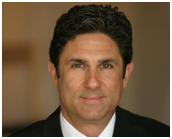Media Kit
As an Integrative Peak Performance Coach and the creator of Invincible Mind Set Training my goal is to inspire and help individuals to believe that “Anything is Possible” and most of all give them the tools to eliminate what’s standing in the way of self-empowerment, and to get clear, get unstuck and get results!
1. Story Angle: Own an Invincible Mindset – Anyone Can Love the “Pressure Moment!”
Train your mind like a champion and achieve roaring success at anything in life. It’s not about meeting expectations or achievements. It isn’t about success or failure – it’s about focusing on what you are currently doing in that moment and knock it out of the park!2. Story Angle: Just Jump In – Overcoming Post-Injury Anxiety – Both Physically and Emotionally!
Physical pain starts with the emotional experience and emotional pain also activates similar regions in the brain.3. Story Angle: Is Changing Your Health Through Your Beliefs Really Possible?
Most scientists believe that no thought, no feeling, and no mental changes ever occur without something physical changing in the body.4. Story Angle: Is Mystery Pain Ruining Your Life?
Mysterious pain may originate in the brain rather than the body, according to recent scientific studies.5. Story Angle: Is Your Bookshelf Full of Self-Help Books That Never Helped?
Millions of books and programs relating to self-help, motivation, spirituality and the like are purchased every year and read but never put to use.6. Story Angle: Victim Ownership – “Professional Victims” and Their Great Cover-ups!
The “Professional Victim” often uses sly yet powerful strategies to cope with anger, to “control” situations and others in order to punish and maintain a sense of dominance.7. Story Angle: For Women Only! How to be empowered, self-assured, and at peace while going through a divorce or break-up and beyond. Be a Victor – not a Victim!
Emotional challenges such as depression, anxiety, loneliness, anger, and feelings of betrayal and powerlessness are common experiences, and by taking the right kind of action you can change the course of your life all at once.8. Story Angle: FOR WOMEN ONLY! The Devastating Effects of Being Bullied!
Emotional intimidation, bullying, emotional terrorism can occur in any relationship but studies show that as adults, it is most often between a man and a women with a higher percentage of men being the aggressor.9. Story Angle: Infertility – The Secret To Surviving The Emotional Infertility Crisis!
Coping With Infertility – the mental toll and the roll of epigenetics and why unexplained infertility is not always just a medical or physical problem!Backgrounder
1 – How to develop the same skills top athletes use to perform under pressure.
- Pressure provides the opportunity to challenge yourself and make adjustments so you continue to progress and perform at your best. Pressure promotes personal growth and is the key to building emotional composure and developing emotional resilience.
- Even though many things in life are out of your control, it’s how you respond to things you can’t control is what matters. By focusing on the way you respond to things you can’t control will not only give you more inner strength, you’ll have the strength of mind to not allow emotions such as anger or disappointment to get in the way of your performance, and by having that emotional composure, it will increase your ability to succeed at whatever you’re focused on accomplishing.
- The very best time to change how you perform is the moment you make a mistake. Recognize that there will never be a better time and place than that moment to make lasting changes and become a champion in your own game and life.
- What does it mean to have an Invincible Mindset?
- How can a student-athlete, a weekend warrior, a professional athlete, entrepreneurs and everyday individuals tap into the mindset of a champion?
- After working for so many years with Professional and Olympic athletes, what causes a skilled and experienced athletes to ‘choke’ under the pressure of competition and how do they develop the emotional resilience to stay composed and staying composed under pressure just becomes automatic?
- How can anyone learn to love the “Pressure Moment!”?
- How different does someone feel when they’re performing at peak levels versus just going about their day as usual?
Backgrounder
2 – A brief exploration on pain and it’s mental roots.
- Many Doctors and Scientists who study brain mechanisms and pain perception believe that – “pain is 80% perceived” and, there is conditioning and reasons for how that pain is perceived. Personally, from working with injuries for more than 25 years, I too believe that 80% of pain is mental or perceived.
- Pain is always both a physical and an emotional experience. If you sprain your ankle, in addition to the physical pain, you are likely to be angry or disappointed with yourself for not paying attention to where you were walking, or not wearing the right shoes on the hike, etc.
- Emotional pain and the emotions associated with pain – fear, anger, embarrassment, resentment, frustration, etc.
- How does Post Injury Anxiety develop?
- What’s the difference between Post-Traumatic Stress Disorder and Post Injury Anxiety?
- Is it true that there is an emotional imprinting and every cell is affected?
- How can you short circuit it’s effects and are there tools to do it?
- How do you unwind Post Injury Anxiety once it’s affected your recovery and behavior?
Backgrounder
3 – A short explanation on how negative and positive beliefs affect your health.
- The beliefs in your subconscious mind create your reality. The events which you will encounter throughout your life are attracted to you by your beliefs, your intentions, and desires. Beliefs are the most fundamental and essential component of the mechanism by which you form your everyday reality including your physical wellbeing.
- Your beliefs are responsible for shaping your perception and your perception is in large part what shapes your physical condition.
- The pessimist’s thinking is “the outcome will be really bad,” where the optimist’s thinking is the opposite: “I can become healthy and strong” and “I can handle this problem.” Positive thinking, especially a belief in your ability to control an illness, is associated with good health and superior performance in school and at work. Pessimists can learn to change their thinking, however, most will need help to do so.
- Is it true – your health is more affected by what you think than what you eat?
- How can your beliefs draw poor health to you?
- What is the reason some people don’t want to get well?
- With all the awareness given to positive thinking, meditation, fitness programs, etc. why is there still so much resistance when we know these things work?
- Can your attitude influence the way your body responds to various medical treatments?
Backgrounder
4 – Stop the mystery pain.
- One in 5 million Americans are suffering from “Mystery Pain” wreaking havoc on their careers and personal lives.
- People seeking relief from unexplained painful conditions are often dismissed by their doctors as being psychological or imagined. Researchers carried out tests on eight people. Some were hypnotized and told they were in pain. Others were subjected to physical pain. Scans showed that both experienced similar brain activity.
- Mystery pain is often a result of emotional or physical trauma trapped in the body. The resulting biochemical and physical changes lead to numerous painful conditions some of which are headaches, chronic back pain and fibromyalgia.
- For fibromyalgia (FM,) medical practitioners most frequently prescribe antidepressants such as Prozac and Zoloft, along with aerobic exercise and cognitive behavioral therapy, which is aimed at modifying negative thoughts and encouraging healthier ways to adapt to illness.
- Are there common personality traits among people with mystery pain?
- How do the present treatment protocols work over the long term?
- What has your experience taught you about working with mystery pain?
- How can you dislodge the trauma without causing even more distress?
- Do people avoid situations that could bring on their intrusive symptoms?
Backgrounder
5 – Help for the self-help “junkie”.
- The self-help/personal growth industry is huge, as evidenced by online book sellers and coaching programs on how-to insight in order to achieve happiness in life or love, to managing your finances and business success. A quick internet search for “self-help” reveals tens of thousands of entries. Some people are junkies for such material. It’s interesting to understand why some people are in constant pursuit of the next “fix” while others resist it.
- Many times there is an addiction to the “process” of self-improvement and personal growth. It’s essential to know all of the self-help lingo so you can help others with their problems but your own problems remain. Most often your fear of success is greater than your fear of failure.
- The majority of people want to develop – become the best possible. Frequently, well-adjusted people seek opportunities that will help achieve that, but when it turns into a lifestyle – perhaps taking a look at “recovering” is in order.
- Why do people use self-help pursuits to soothe their deeply rooted wounds and feelings of failure?
- What’s the difference between a procrastinator and a self-help junkie?
- How can someone get off this expensive and time consuming treadmill?
- Do you think that self-help junkies are really masking their reluctance to change?
- What is the secret to attaining confidence and self-esteem?
Backgrounder
6 – Self-proclaimed victims – a way of life.
- The self-proclaimed “victim” will often have a medical profile of various disorders ─ a range of painful to somewhat limiting physical histories.
- The self-proclaimed “victim” understands what button to push to begin a chain of events in order to provide you “proof” of implied “abusive” behavior from others.
- The “social victim” has a elaborate web of reasons why they can’t achieve their goals and desires ranging from the government, big business, their political opposites, race, religion and so on.
- It is not a game, but a learned and accepted way of life. Making use of sly yet powerful behaviors provide the self-proclaimed “victim” a safety net while acting out this negative behavior pattern.
- Why do so many people who are “victims” seem to be stuck on being angry?
- In the subconscious mind, do most “victims” believe they deserve negative treatment from others?
- What are the secondary benefits of being a “victim”?
- How can one erase the debilitating consequences that result from social stigmas and prejudices?
- What role does social and cultural, lie-based brainwashing and indoctrination play in your core belief system?
Backgrounder
7 – A divorce or break-up activates fear and uncertainty about the future.
- Studies indicate that women are more negatively affected, both emotionally and physically by a break-up.
- Lingering emotional issues from past experiences often manifest in physical pain leading to physical symptoms that do not have an identifiable physical cause.
- When a relationship ends, it can be enormously painful because it not only represents the loss of the partnership, but also the loss of your shared commitments, visions of the future, and all the plans you made are thrown out the window. While working with many women going through a divorce or break-up, helping them to develop their invincible mindset is the key to becoming an Invincible Divorcée.
- What is the definition of an Invincible Divorcée?
- What prompted you, a Peak Performance Coach working with professional athletes to develop a program for women going through a divorce or break-up?
- Even though women are more likely to be the one that files for divorce, why is it that women are more negatively affected by the divorce than men?
- Why do women like working with you instead of working with another woman and how is your approach so different?
- What do you see as the biggest issue for women moving forward?
Backgrounder
8 – The psychological effects of bullying and the significant, negative influence it has on every area of the victims life.
- The consequences of being the victim of bullying is serious—and that’s not even taking into account the depression, anxiety, and other more immediate suffering that can produce poor health. Bullying harms self-confidence and creates stress both mentally and physically, encourages substance abuse, social withdrawal and in extreme cases – even suicide.
- Anxiety attacks and the pain and distress a victim of bullying experiences can lead to feeling lonely, isolated, vulnerable, and extremely anxious. What’s more, these consequences of bullying linger long after the bully has moved on.
- Inability to trust is a common result of being bullied. Bullying is a form of betrayal and when one feels betrayed, that enduring bond of trust is broken. Loss of trust leads to feelings of uncertainty and lack of safety.
- What led you to working with women on this issue since most of the information and programs on bullying focuses primarily on the problems kids face from being bullied?
- How do you identify and understand the reasons for bullying? Is the aggressor jealous, envious and lacking self-confidence; – what’s wrong with the bully and how can their behavior be changed?
- Once you identify who you’re dealing with, are there different approaches to dealing with each type?
- When feeling betrayed and trust is gone, how do you deal with that Inner Bully that’s constantly beating you up and controlling your emotions, beliefs and behavior?
- If you’ve fallen victim to bullying, how do you overcome it?
Backgrounder
9 – Trying to conceive and the emotional devastation of infertility.
- Scientists have made some incredible new discoveries on how our minds can literally affect our biology, especially through the study of epigenetics, the branch of science that looks at how inherited changes of phenotype (appearance) or gene expression are caused by mechanisms other than changes in the underlying DNA sequence. Instead of looking at DNA as the only factor controlling our biology, scientists are also looking at what’s actually controlling the DNA, which includes our thoughts.
- So what does any of this have to do with fertility? New evidence suggests that stress does affect fertility. Recent studies show that women with high levels of alpha-amylase, an enzyme that correlates with stress, have a harder time getting pregnant.
- Infertility is a devastating issue for millions of people. While many women get pregnant easily, some even by accident, couples challenged by infertility seem blocked from achieving their goal of having a family. What started out as a dream being fulfilled quickly becomes an all-encompassing dilemma or obsession as it’s been described to me by many women going through this journey. They feel out of control, questioning themselves and their femininity, the who, what, how and all the why’s….
- Why is the role that stress plays in the lack of successful conceptions often discounted in the medical community?
- What is the connection between the environment a baby is conceived in and the baby’s overall health in the womb and in the future?
- Why is this key element (The Environment) mostly overlooked in the doctor’s office?
- What role does the man have in the infertility process and how can he be empathetic toward his wife but also handle his feelings of hopelessness and overwhelm?
- Working with couples dealing with infertility, how does your coaching work help them?





